Mabel Dobbs:
Fighting for Fairness in Agriculture
Mabel Dobbs sat at her kitchen table with her hands folded neatly on a stack of papers. The room is sprinkled with family portraits and ranching memorabilia. A wedding portrait of Mabel and her late husband Grant from 1984 hangs to her left – “Bull Rider” is written in rope below the photograph.
“I think it’s critically important…as I look back over the last 30 years, to constantly be retelling these stories. There is so much to garner from these stories,” Mabel said. “Today there are still such a huge number of people who are not able to wrap their heads around how we have gotten to where we are at with family agriculture, corporate agriculture, and all of the problems that are out there. I just think the stories have to be told.”
Mabel has been fighting for fairness in agriculture for the last 35 years.
“After 20 some years as a banker and a mortgage lender, I married an Idaho rancher in 1984 in Challis, Idaho,” said Mabel.
Within their first year of marriage, Mabel learned the plethora of problems that plague the U.S. agricultural and food system.
“Grant was down there weighing up the calves dickering on what the buyer was going to give hin for his calves, and I looked at Grant and said, ‘I don’t understand this. How can you work all year long to raise your product and grow your product and go out on the market place and say what will you give me for this,’” Mabel said.
Mabel said she had never witnessed this kind of pay set up.
“I grew up in a banking industry where a producer produced whatever their product was, figured their cost of production, added a profit, priced their product and said this is my price,” Mabel said.
Like most ranchers, the lack of control over prices and policies that affect their livelihood, Mabel and her family have faced every agricultural struggle imaginable.
Mabel’s advocacy work started 35 years ago during the Farm Crisis.
Mabel and Grant had signed three notes in blank to a bank in 1985. They had plans to expand their operation and were going to rely on their assets to support the loans. They would pay off the loans over a five year period. With that setup, they would have enough time to put away money gained from the operation to pay off what they borrowed. A few months after they signed the statement, they were notified all of the payments were due in six months.
Since then, Mabel has spent her time fighting for a fair food and agriculture system for Americans. Mabel has fought for farm and ranch families through a range of policies.
In 1993 she stood up for a fair North American Free Trade Agreement (NAFTA) that would help, not hinder people when it comes to their agricultural livelihood. She voiced her concerns with the way NAFTA would displace the profits of Americans in agriculture. In the late 1990s Mabel lobbied against big meatpacking companies as the U.S. began importing live cattle from Mexico and Canada to finish and process in the States. Mabel joined with allies to fight and win Country of Origin Labeling (COOL), so consumers could have the right to know where their beef and pork was raised. When COOL for beef was challenged and repealed in 2015 Mabel advocated for the importance of proper labeling. Since the beginning of her advocacy work, Mabel has been involved in fighting for fair prices, sustainable practices, and programs for new and beginning farmers with every Farm Bill.
Mabel and her family have witnessed first hand how national policies shape ranch life day in and day out. The Dobbs have faced every agricultural struggle imaginable but selling the ranch was never an option.
“Our retirement could probably have been much better had we sold out the ranch to someone from California and took the money and moved into town. But that was never, from the time that we struggled to stay and ranch and after we lost everything and started over in 1990, that was never a thought that I had,” Mabel said.
Mabel’s dedication to fixing the American agricultural system has not dwindled.
“I’ve been in this long enough to know that you have to personally touch people to get them involved…and that’s not always easy. I just know we have to keep the fight going,” Mabel said.
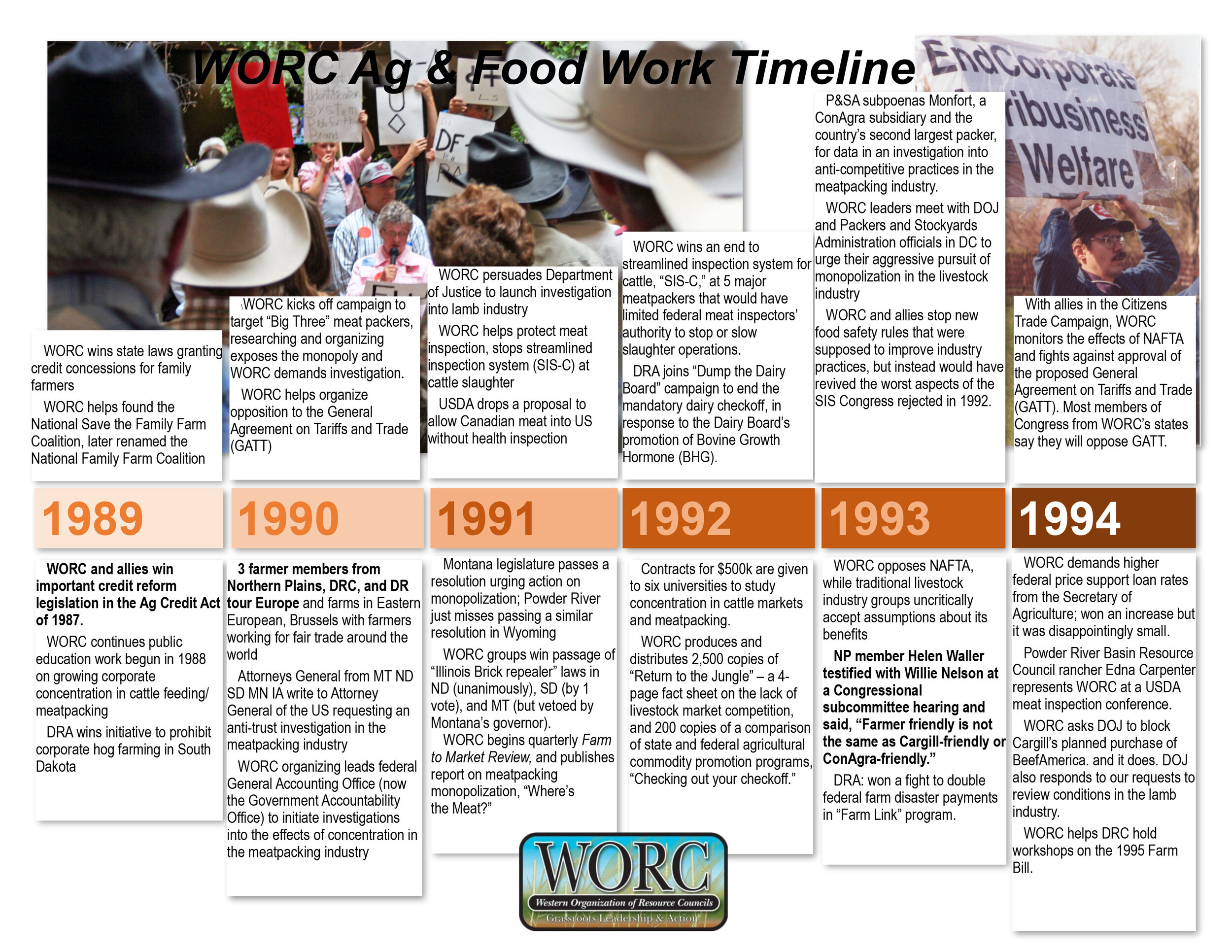
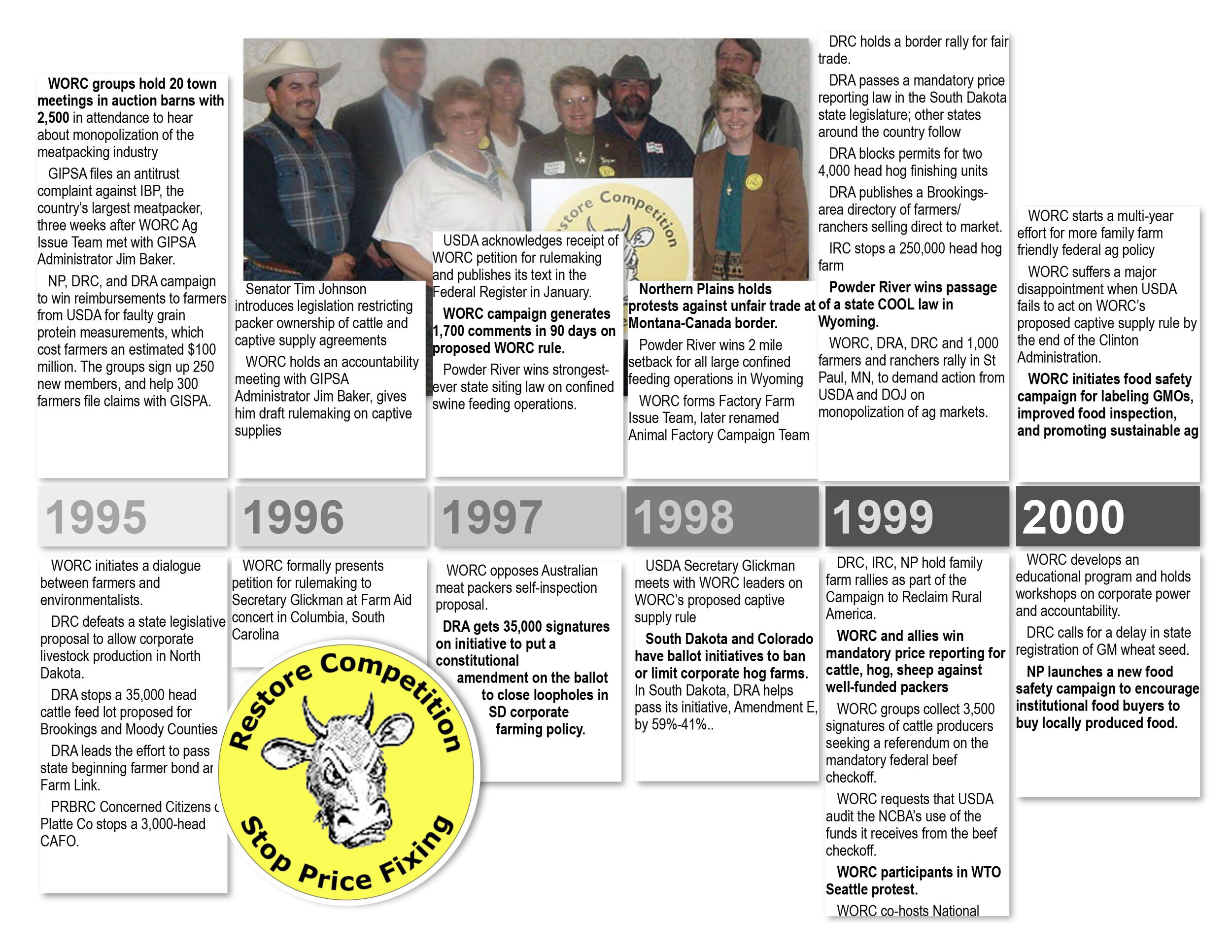
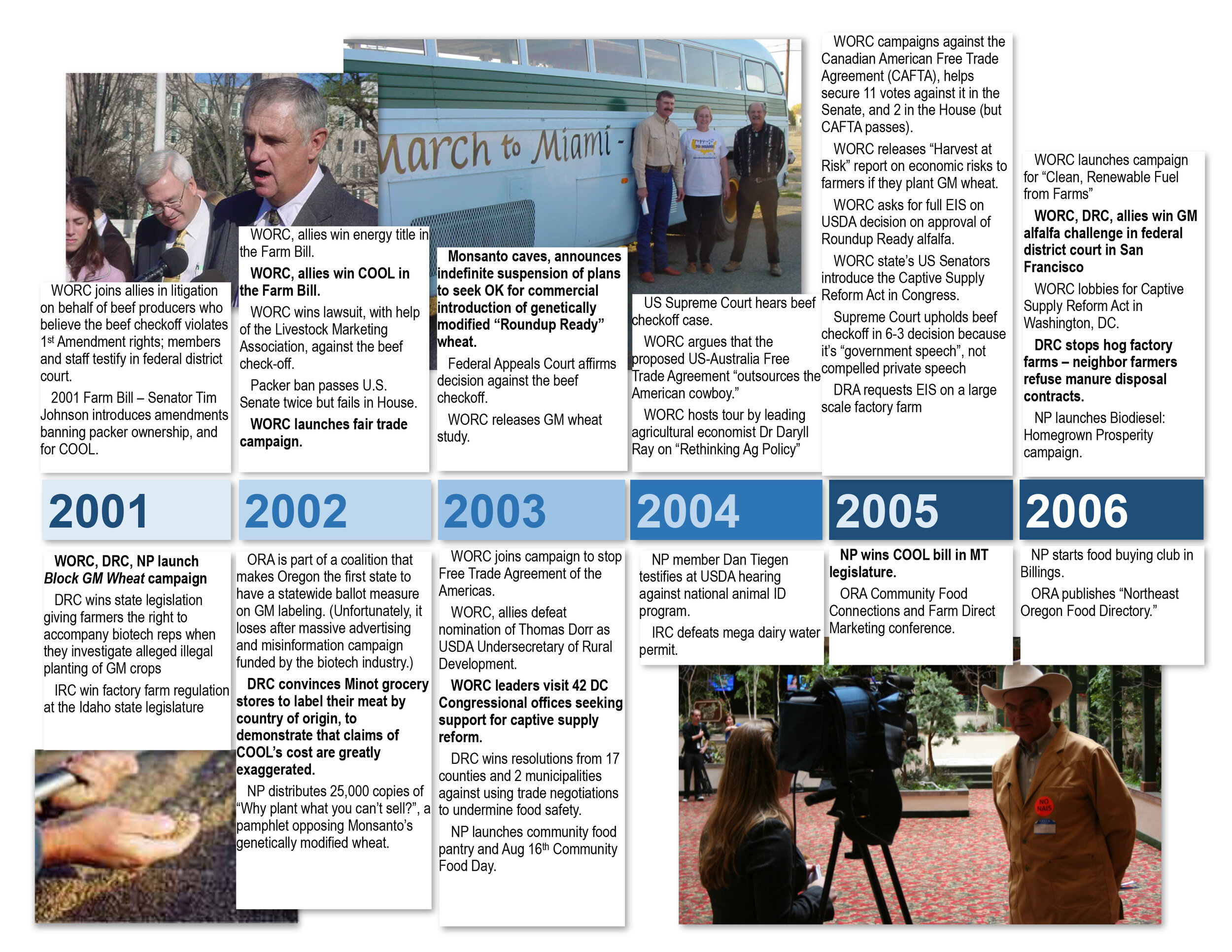
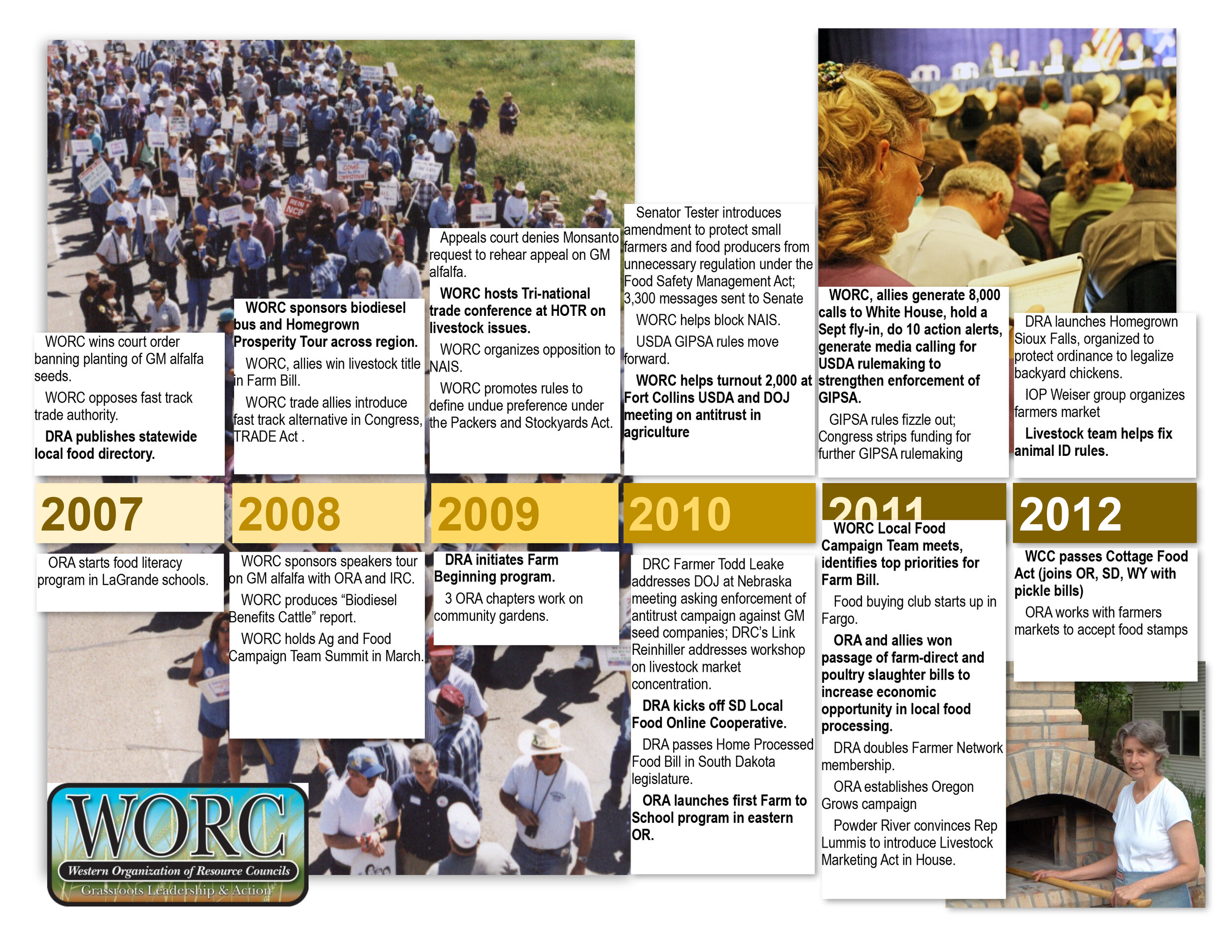
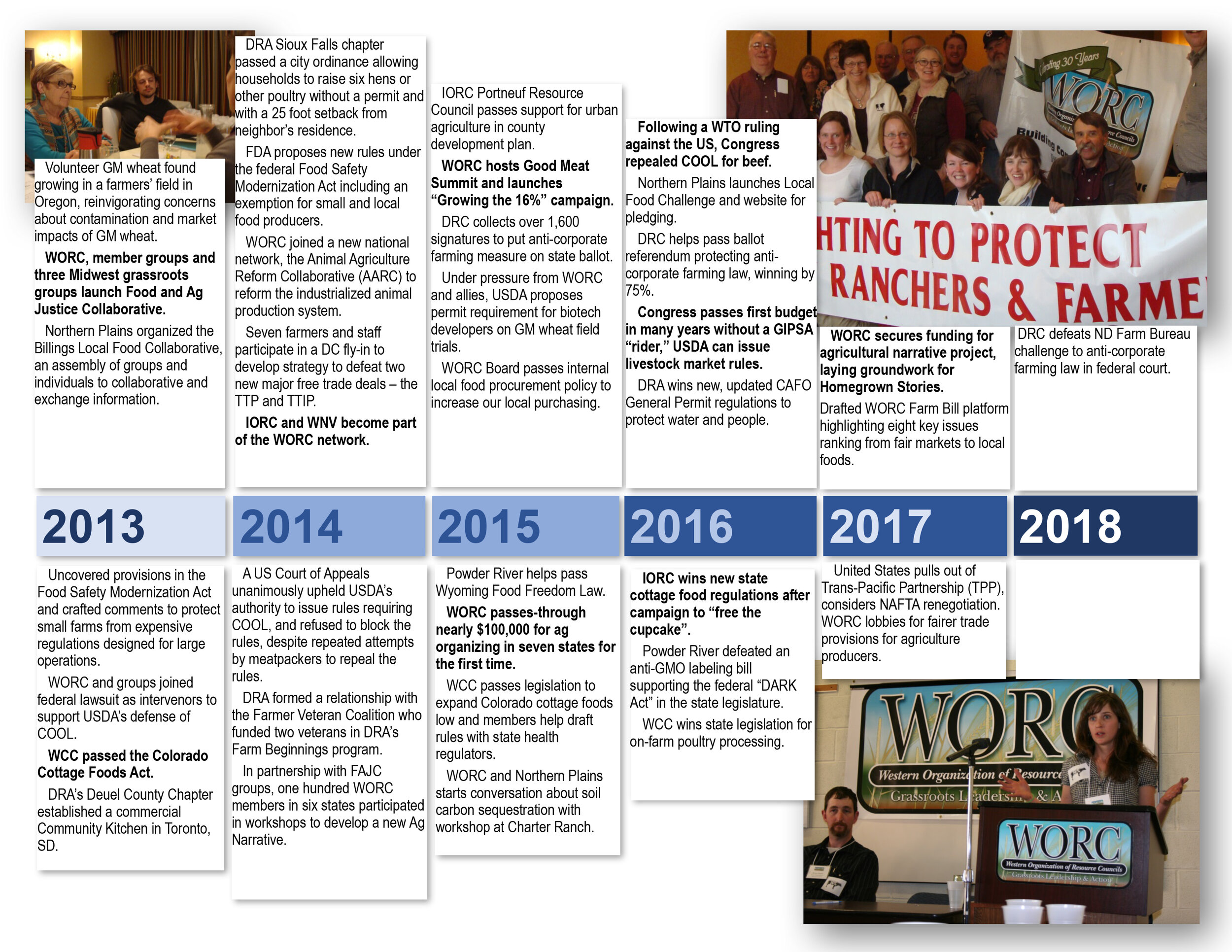
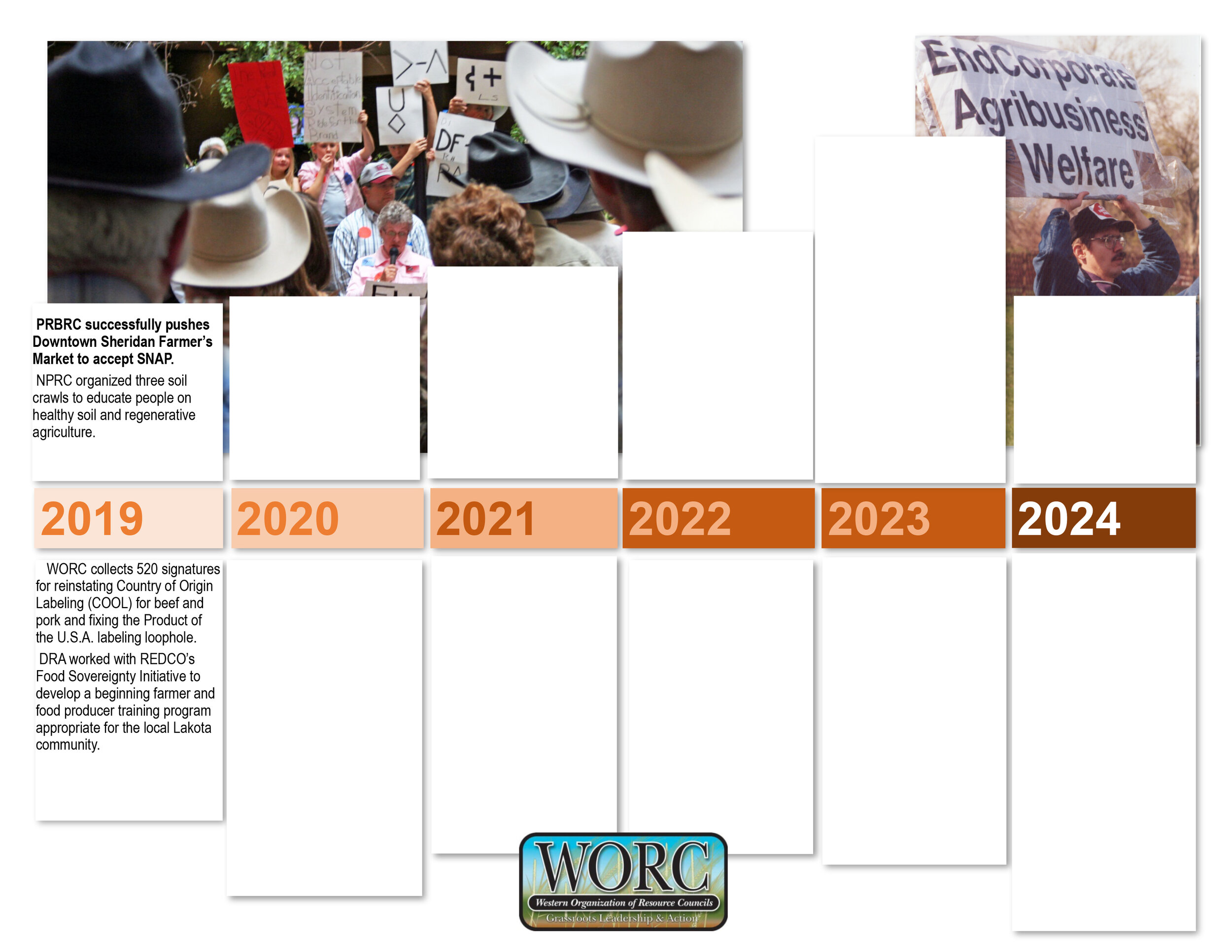
A timeline of agriculture and food work Western Organization of Resource Councils has been involved in since the start.

